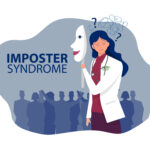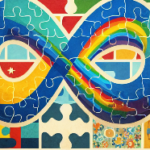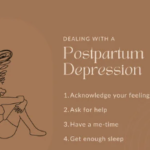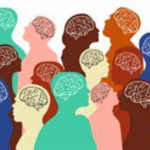Effective management of menstruation, a universal biological process, necessitates sufficient planning and education. Managing menstruation can be particularly difficult for people with learning impairments because of a lack of specialized education, social stigma, and restricted access to relevant resources. For individuals with learning impairments, being prepared for their periods is not only a health education issue but also a crucial component of fostering inclusion, independence, and dignity.
Learning Disabilities Menstruation Challenges
Menstruation presents special challenges for those with learning difficulties. They may find it difficult to comprehend complicated biological processes or menstruation management recommendations due to cognitive and linguistic limitations. Many individuals with learning difficulties lack the literacy and comprehension skills assumed by traditional menstrual education resources, which are frequently text-heavy. Second, for this group, the shame associated with menstruation may be significantly more severe. Families and caregivers may be reluctant to discuss menstruation in public, which leaves people unprepared for this normal occurrence. Dependency on caretakers might also make people feel more dependent and less confident about managing their periods on their own. Additionally, a lack of preparation might result in a sense of shame around menstruation, poor hygiene habits, and elevated anxiety.
Strategies and Usefulness of Menstruation Preparedness
For individuals with learning disabilities, being ready for menstruation is essential for a number of reasons. These people can manage their periods with little help if they have the right information and tools, which promotes autonomy and self-worth. By lowering the risk of infections and other issues linked to inadequate menstrual hygiene, menstrual readiness improves hygiene and health outcomes. Additionally, being ready for menstruation is a step toward social inclusion. Society combats the stigma and misunderstandings associated with both menstruation and disability by providing people with the information and abilities to manage their periods. This promotes a culture of compassion, comprehension, and assistance for those with learning difficulties.
A comprehensive and inclusive strategy is necessary when creating a menstruation readiness program for individuals with learning difficulties. Different cognitive abilities must be accommodated in the design of educational materials. Simple language, interactive resources like role-playing and movies, and visual aids can all improve the effectiveness and engagement of the learning process and when explaining how to use sanitary pads or dispose of menstruation products, for instance, visual charts might have a greater impact than just spoken instructions.
Another essential element of menstruation readiness is training caregivers. Caregivers must receive training on how to empower and non-intimidately introduce menstruation to people with learning difficulties. Along with encouraging the person’s independence, they should also have emergency management techniques for things like uncomfortable situations or unplanned periods.
Access to menstruation hygiene products that are customized for each person’s needs is also crucial. For example, some people may benefit from reusable products, while others may prefer disposable ones. Teaching appropriate disposal techniques is equally crucial for preserving environmental awareness and hygiene.
What can be done about this?
Another essential element of menstruation readiness is training caregivers. Caregivers must receive training on how to empower and non-intimidately introduce menstruation to people with learning difficulties. Along with encouraging the person’s independence, they should also have emergency management techniques for things like uncomfortable situations or unplanned periods.
Access to menstruation hygiene products that are customized for each person’s needs is also crucial. For example, some people may benefit from reusable products, while others may prefer disposable ones. Teaching appropriate disposal techniques is equally crucial for preserving environmental awareness and hygiene.
In conclusion, for individuals with learning difficulties, menstrual readiness is a human rights problem in addition to a health one. Society can enable people with learning difficulties to handle their periods with dignity and confidence by addressing the particular obstacles they encounter. It is a crucial first step toward equity, inclusivity, and acknowledging the variety of needs present in our communities. Menstrual readiness can help create a more compassionate and inclusive environment through specialized education, caregiver support, and social advocacy.
Credit : Okondu Ogechukwu Emmanuel MPH, PhD (c)
Lecturer @ Nnamdi Azikiwe University, Commonwealth Scholar; Board-Chairperson/CEO Emsaj Publishing Global, Email: emmaokondu@gmail.com, Tel: +23407085779565



















